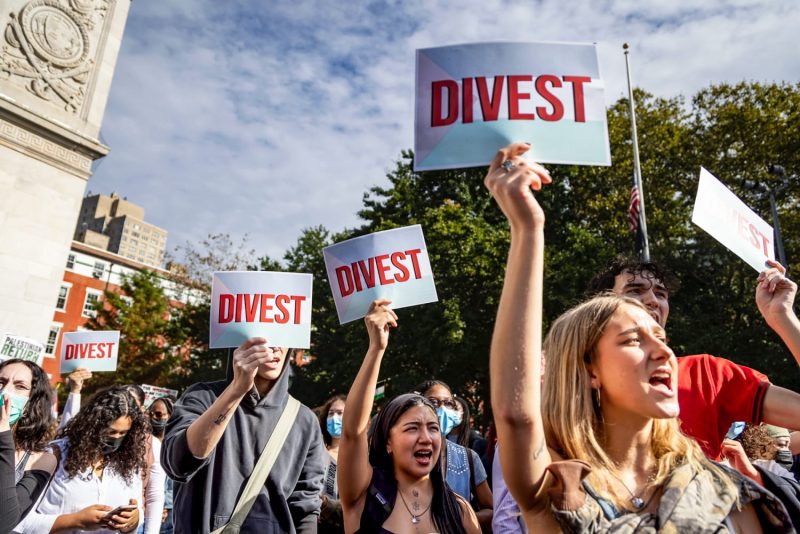In recent years, there has been an increasing prominence of student-led movements in college and university campuses across the United States, advocating for their institutions to cut investment ties with Israel. These initiatives are part of a broader, worldwide campaign known as the Boycott, Divestment, Sanctions (BDS) movement, aimed at applying economic and political pressure on Israel to address its policies towards Palestine.
Originally established in 2005 by Palestinian civil society organizations, the BDS movement, with its three-pronged strategy, has become an international campaign backed by activists, intellectuals, and groups across the globe.
The first factor, Boycott, advocates for individuals, companies, and institutions to stop buying Israeli products as well as to halt any kind of cultural and academic collaborations with Israeli institutions. Divestment, the second factor, emboldens corporations, universities, and local governments to withdraw their investments in Israeli companies or in international companies implicated in violations of Palestinian rights. Sanctions, the third and final component, calls for governments to fulfill their legal obligation to hold Israel accountable by ending military trade and free-trade agreements, along with suspending Israel’s membership in international forums.
At the heart of the BDS movement is the assertion that Israel is a settler colonial state, established on land where Palestinian Arabs historically resided. The movement claims and brings to highlight that this led to the displacement of hundreds of thousands of Palestinians, a diaspora that persists today. The BDS movement argues that Israel continues to violate the rights of Palestinians in the occupied territories and within Israel’s pre-1967 borders.
Equally important aspects are the specific demands of the BDS movement. It seeks the end of Israeli occupation and colonization of all Arab lands, dismantling the Wall, full equality for Arab-Palestinian citizens of Israel, and respecting and promoting the rights of Palestinian refugees to return to their homes and properties, as stipulated in UN resolution 194.
In American higher education, BDS campaigns are typically student-led and have involved efforts to persuade college and university administrators to divest from companies or funds with links to Israel. This can take various forms, from petitions and open letters to organized protests and sit-ins.
Critics of the BDS movement argue that it unfairly targets the State of Israel and fosters an environment of antisemitism. They believe that BDS undermines peace efforts by refusing to acknowledge Israeli narratives and delegitimizing the State of Israel. However, proponents of BDS contend it is a nonviolent means of resisting occupation and injustice, and differentiates between opposition to Israeli state practices and hatred towards Jewish people.
Universities and colleges have become key battlegrounds for this issue, and the outcomes of these BDS campaigns have varied greatly. Some institutions have chosen to divest from certain companies with links to Israel, while others have rebuffed the demands altogether.
In conclusion, the BDS movement, and the role played by American higher education in it, continues to be a highly contentious issue. It presents challenges to these institutions around navigating the complex dynamics of advocating for human rights, freedom of speech, balanced political discourse, and practical implications of financial investments.
Regardless of any viewpoint on the subject, what remains clear is that the call among tertiary students for their universities to divest from Israeli ties speaks to an age of activism and social consciousness that continues to impact American higher education institutions.
